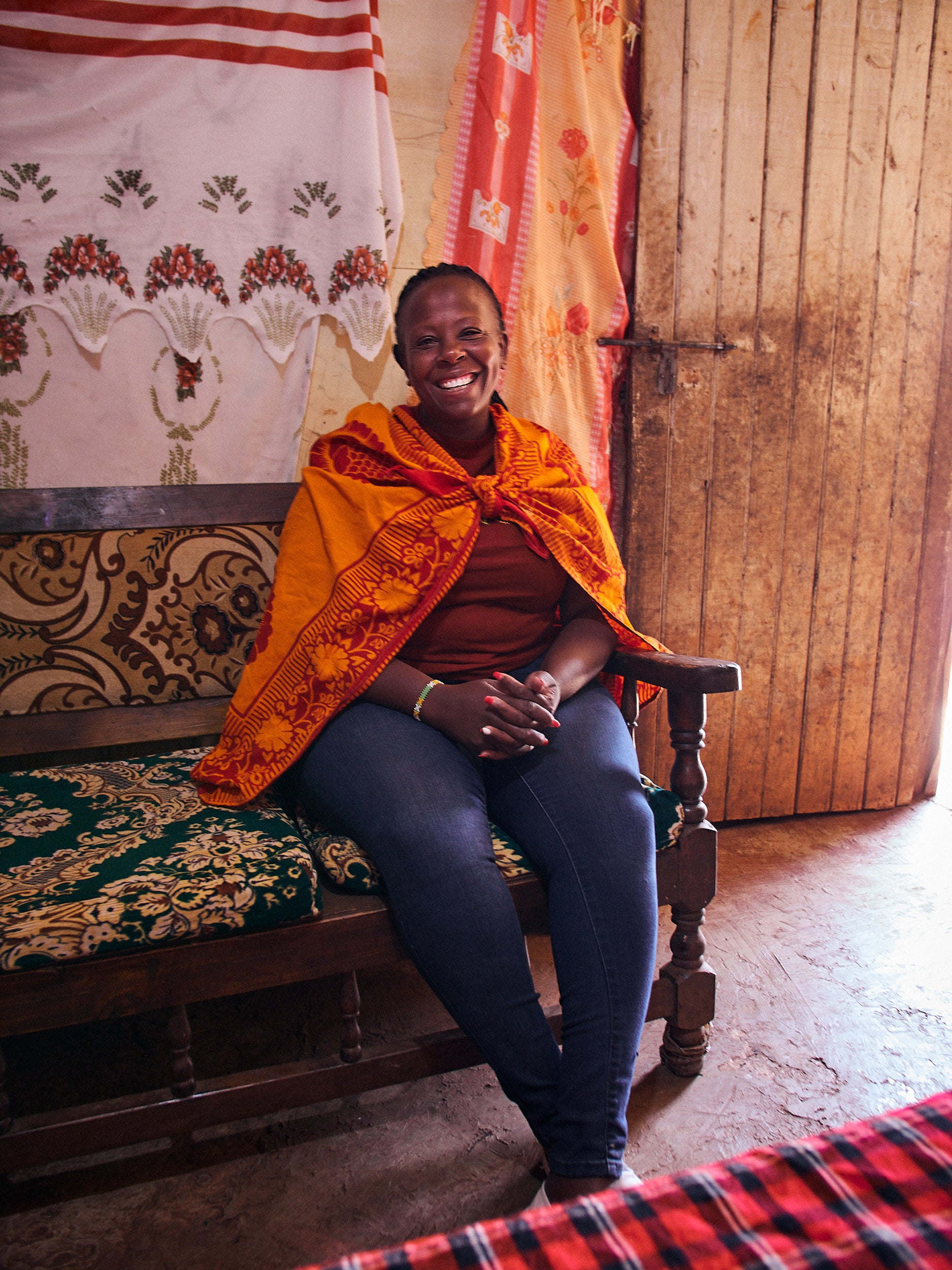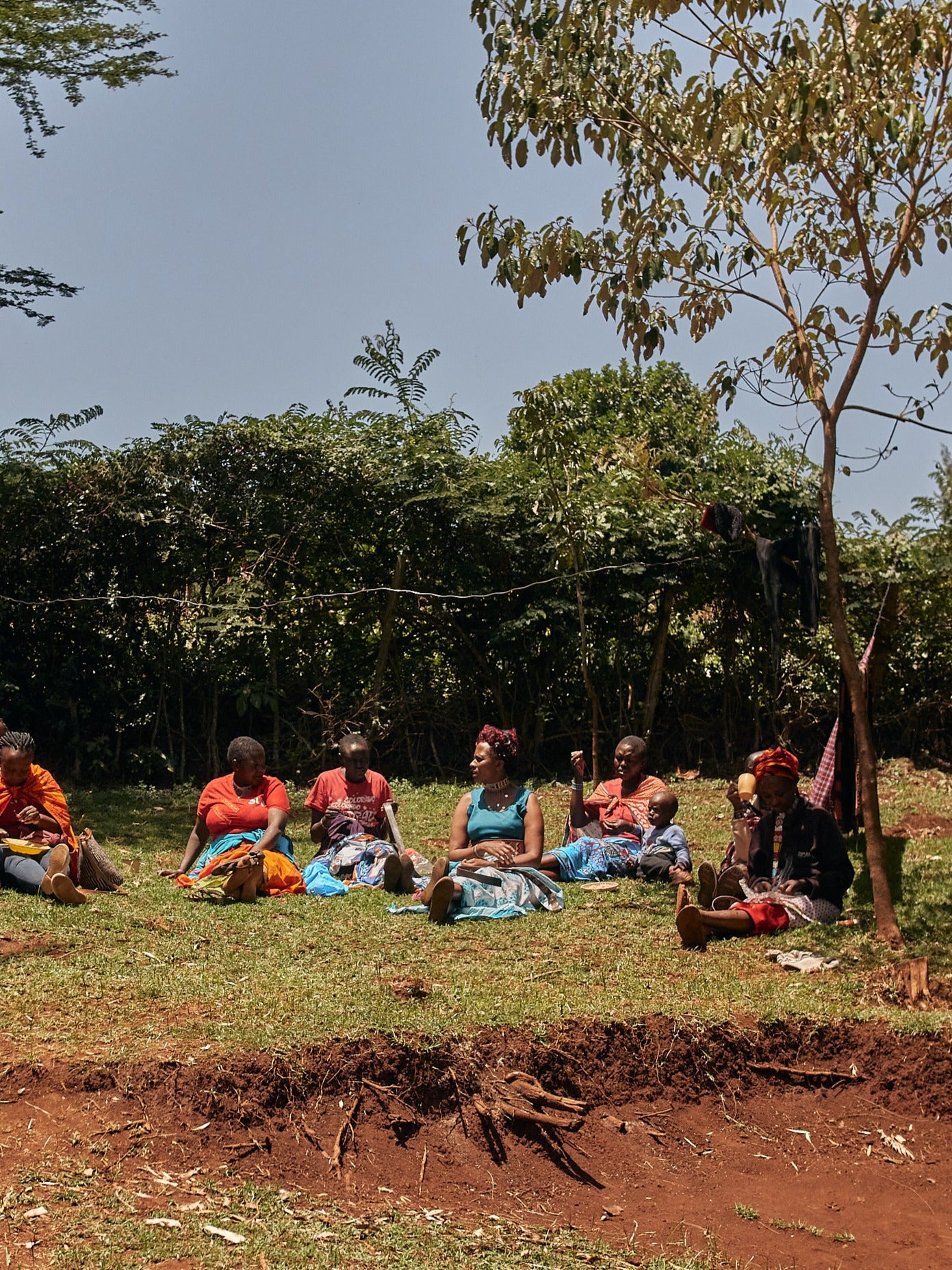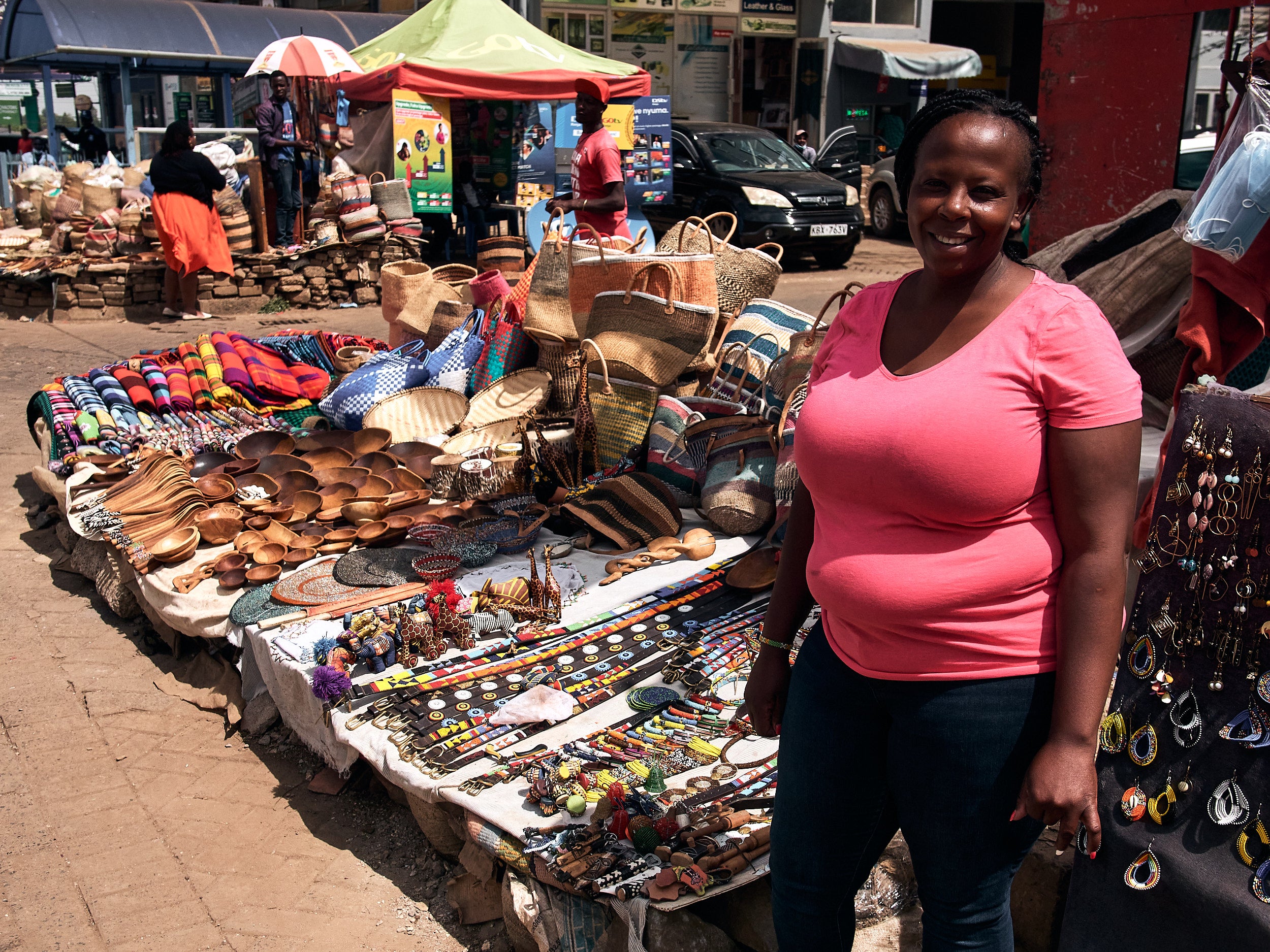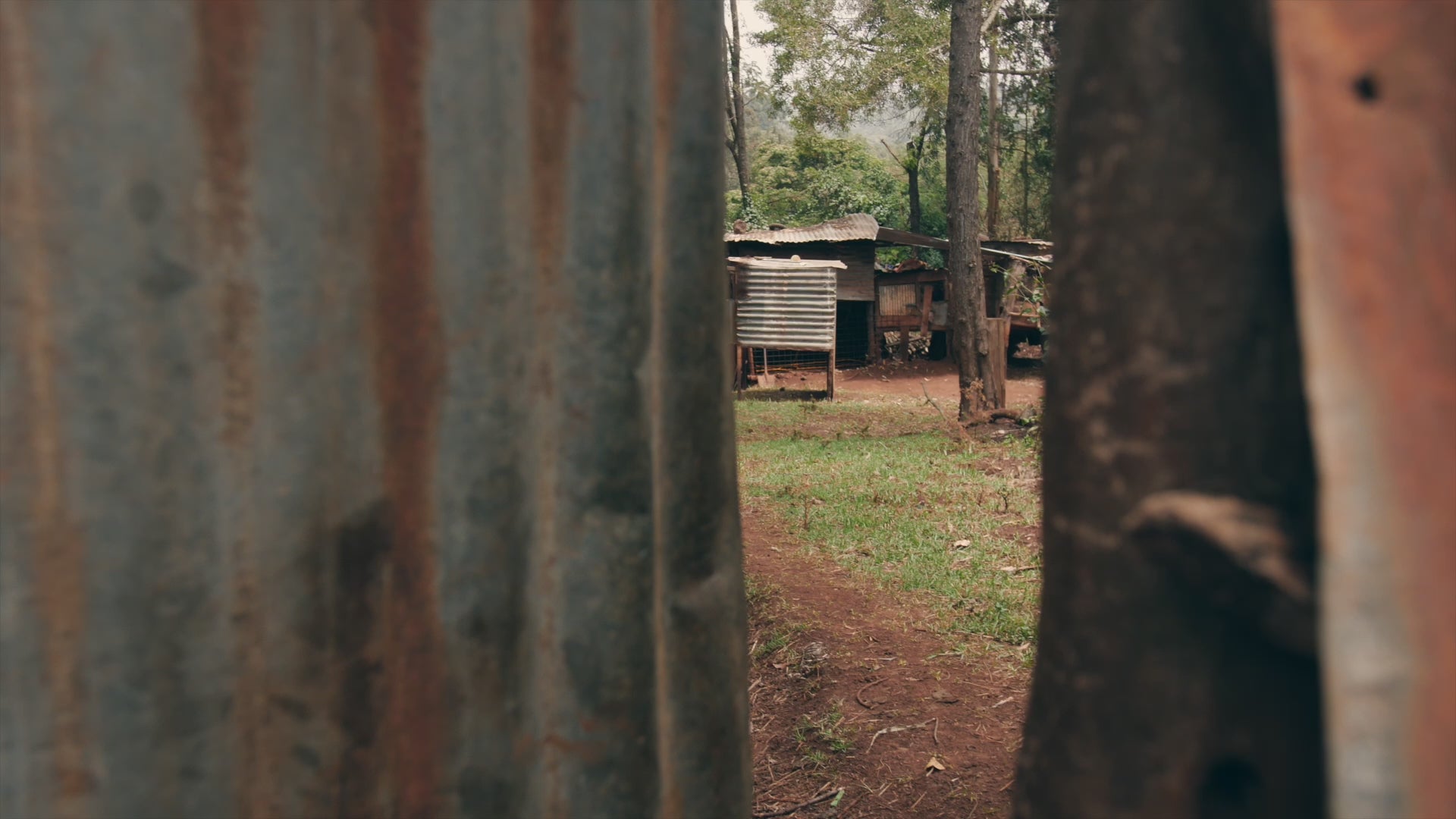RHIMANI AND FAIR TRADE
With our 'Handmade in Nairobi' collection, we are always working to be as transparent as we possibly can. We want to show you how things work in Kenya, and the behind the scenes.
Our suppliers in Nairobi are paid ‘fairly’ and 'equally' but what does that actually mean? What does ‘fair trade’ really translate to?
Fair trade means “trade between companies in developed countries and producers in developing countries in which fair prices are paid to the producer” (WFTO, World Health Trade Organisation).

1) CREATING OPPORTUNITES FOR ECONOMICALLY DISADVANTAGED SUPPLIERS
Our head supplier is called Anne who lives in Nairobi. I chose Anne as our top supplier because she employs a team of Maasai women to handcraft beaded items. By hiring these women Anne provides employment through trade. We support Anne’s business, and Anne provides economic self-sufficiency to her employees.
2) TRANSPARENCY AND ACCOUNTABILITY
I visit Anne and the team in Nairobi regularly. I see our jewellery in production and the working conditions. Throughout Rhimani’s website and social media, we show our own media and share our own information. We pass on an honest view, showing our behind the scenes and suppliers, and will always continue to do this.
3) FAIR TRADING PRACTICES
We place our orders with Anne on a wholesale basis. For each order we place with Anne, we pay exactly what she asks, and when it is asked for. This may mean all the money up front so Anne can buy the materials and pay wages throughout the process. If we pay Anne in advance, we pay any remaining balance before the goods leave Kenya.
We have never cancelled an order. As soon as we approve samples and confirm our orders, the order is final.
As our items are handmade, we often receive faulty goods. More often than not we will repair these in house or we will host sample sales for these slightly faulty items. Ab-so-lutely no charges incurred are charged back to Anne.
Rhimani is a fair trade business which means we conform to the 10 principles of fair trade, as set by the WFTO (World Fair-trade Organisation) throughout our entire supply chain.

4) FAIR PAY
Our price is one that is mutually agreed by Anne and myself. I ensure Anne is then paying her own team fairly. The minimum wage in Nairobi for artisans is dependant on their level of skill. An ungraded artisan has a lower minimum wage than a Grade I artisan. We pay all our team at least 3 X higher the minimum wage for Grade I (most skilful) artisans in Nairobi.
5) ENSURING NO CHILD LABOUR OR FORCED LABOUR
We ensure there is absolutely no child labour or forced labor in Anne’s business.
6) COMMITMENT TO NON DISCRIMINATION, GENDER EQUITY AND WOMEN'S ECONOMIC EMPOWERMENT AND FREEDOM OF ASSOCIATION
There is equality in Anne’s workplace and wage is decided based on skill, job requirements and experience. There is no discrimination in hiring, payment, access to training, race, religion, gender, sexual orientation, political affiliation or age.
7) ENSURING GOOD WORKING CONDITIONS
The women create Rhimani's jewellery outside in the sunshine at their homes. I regularly visit Anne and her employees, and see where exactly the jewellery is created. It is a safe and healthy working environment that is in line with the International Labour Organization (ILO) conventions.

8) PROVIDING CAPACITY BUILDING
Anne is keen to develop the skills and capabilities of the people she employs, providing training and constantly striving to ensure her business is growing so she can continue providing job security. Anne is Rhimani’s sole Kenyan supplier. As our small business grows, the more Anne’s small business grows and prospers.
9) PROMOTING FAIR TRADE
Throughout our website and social media, we always strive to raise awareness for the need of greater justice in world trade by trading fairly with poor communities. Our 'Handmade in Nairobi' earring collection is one we use to celebrate the Maasai culture, and raise awareness for fair trade.
10) PROTECTING THE ENVIRONMENT
Our jewellery is created using glass seed beads. People are surprised to hear it’s not plastic. Alongside glass seed beads, we use materials such as wood and metal, or we use recycled materials. In 2017, Kenya banned the use, manufacture and importation of all plastic bags for commercial and household packaging! When Anne sends Rhimani’s orders to the UK, she sends them in cardboard boxes and re-usable cotton bags. In the UK, our packaging for orders is compostable, recyclable and compostable.

